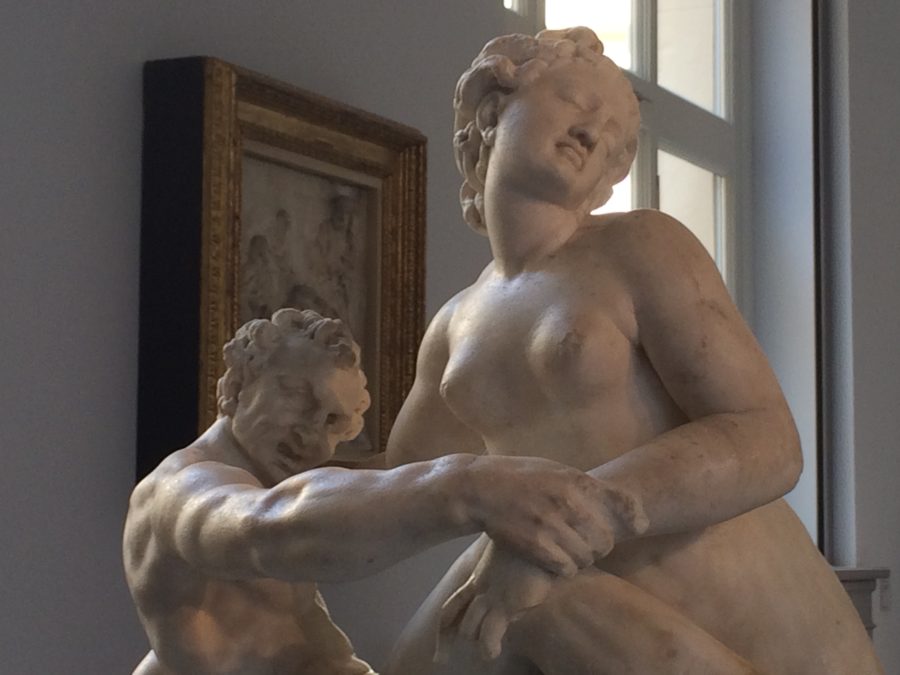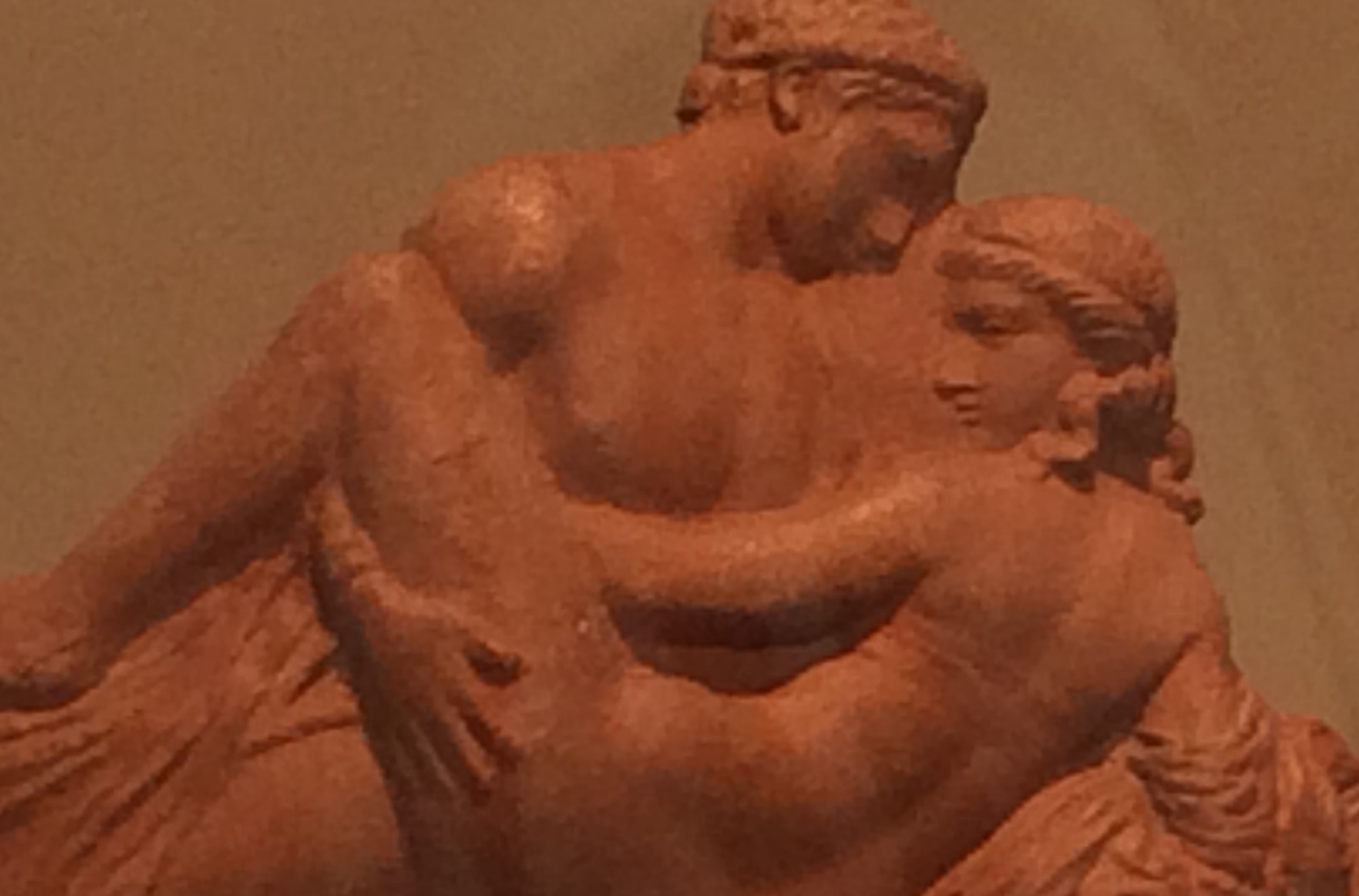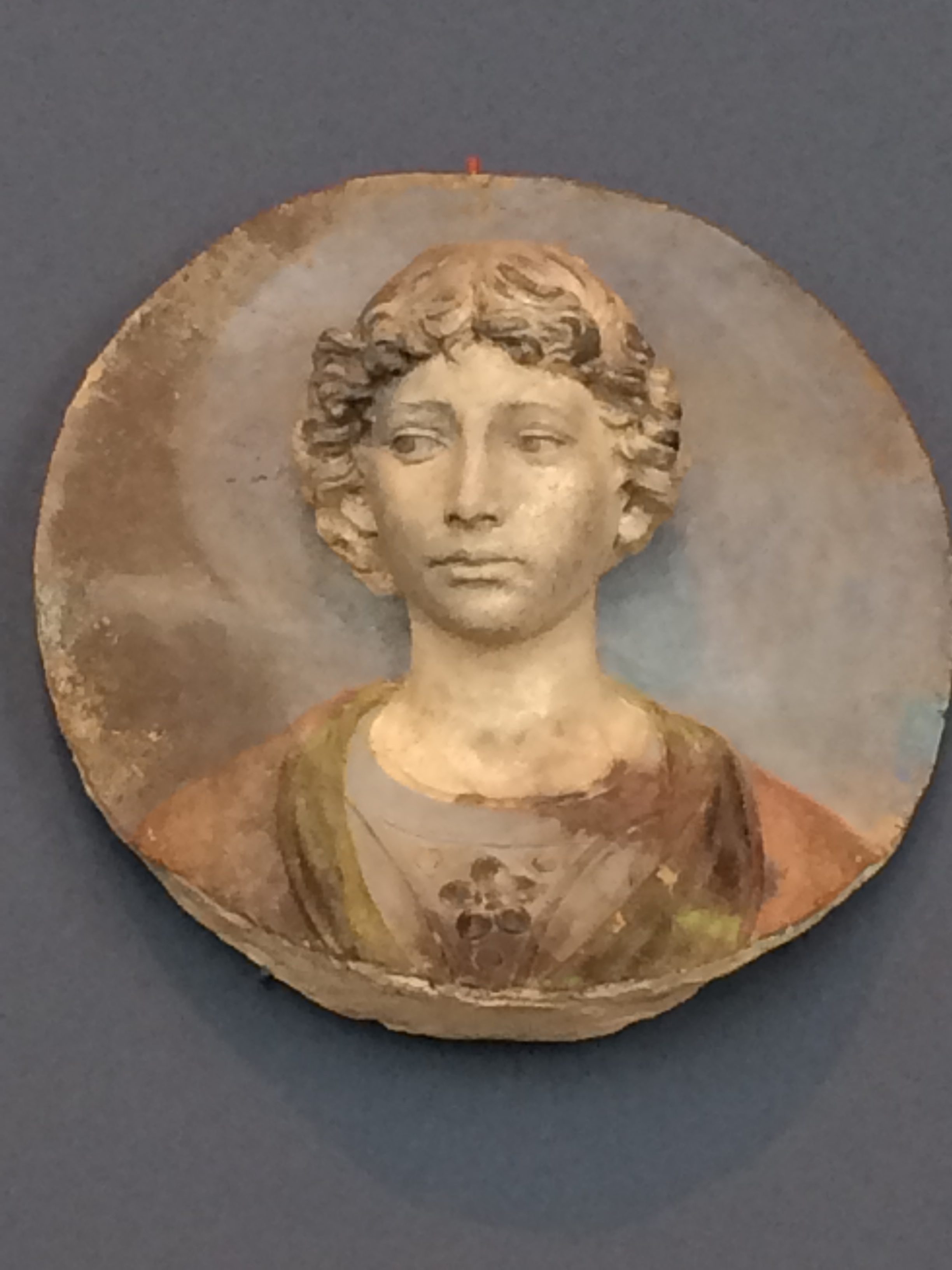Chasms in the classical music world are becoming increasingly obvious as a result of the war in Ukraine. The pressures recently placed on artists to make a clear public statement, pressures which are being applied by various cultural organizations, have fomented resentments and created a whirlwind of controversy around the exercise of private and public opinions in relation to art and culture. There has been a heated reignition of the long-standing debate of how far one might (or should) separate the art from the artist. Things are not quite so clear-cut as some involved in the debate would believe, however; the institutional motivations behind applying that pressure, and the decision to cancel Russian artists and music in some instances, are enmeshed within a tight knot of funding, education, location, history, access, and the effects of two years of pandemic on the arts landscape overall. Audiences are proving slow in their return in many markets; the optics of doing the perceived “right thing” to convince them of the value of return has never been more pronounced.
This essay began life as a series of observations on the current state of music, politics, intercontinental preconceptions, funding models, education cuts, algorithms, public relations, and evolving notions of collective responsibility. Since starting on 3 March, the piece has become longer and broader than what was initially intended, and is now an ever-evolving, super-fussy Hydra. Just when I think one section is complete, along comes… more: another piece of learning; a dire bit of news; the reading of a comment thread; a conversation; the sound of violins playing a folk song. At those times I become curious, and am forced to rethink. In the interests of organization and finitude, I will be publishing this piece in four parts, likely not wholly consecutive but interspersed with artist conversations, this website’s initial raison d’être at its launch in 2017. It has been suggested this current essayistic pursuit is more suited to book form – perhaps? The great paradox of digital publishing is its essential changeability and permanence; everyone remembers when you screw up; everyone knows when you edit. I have no problem standing thusly naked before readers – I just want to make sure I can control the temperature of the water before dropping my robe.
Part 1
It feels reductive to state “war is hell.” It is that, of course, because it makes everything and everyone around it hell, one rife with twisting corridors and uneven floors, crumbling staircases leading to ever more dimly-lit labyrinthine levels. The invasion of Ukraine has uncovered an increasingly rigid cultural exceptionalism across continents, one fast becoming the elephant in the auditorium. It is an element which is proving unhelpful for artists and audiences alike, because its existence is so patently antithetical to the notion that music is a unifying force, this concept which many artists state with urgent sincerity. How can this great oneness have any validity in the real world if a newcomer is constantly made to feel intellectually and creatively small by those holding more formal knowledge and training? The reactionary engineering of social media fosters such hostilities (and related reactivity) whilst simultaneously obscuring the practises of public relations, thus perpetuating a broad ignorance around the roles of finance and education. Such comprehension is not something governments or organizations would wish to be known, but that does not erase the validity of such investigation. One cannot simply shout “They are cancelling Russian artists!” without understanding the true mechanisms which have largely driven such cancellations; I would wager that they are less driven by xenophobia than by economics, and as much related to maintaining public relations as to pleasing donor bases. There is also, importantly, a deep aversion to risk after two years of pandemic; anything that gives off so much as a whiff of risk is duly launched off the boat, with all the expected words and righteous noises – sensitivity; community; solidarity. Bravo… ish.
Thus the recent claims of there occurring a giant wave of Russophobia within the classical realm (a victim narrative the Putin regime fosters, incidentally) are not completely accurate; no doubt that does exist, but one must keep context in firm focus. New York’s Metropolitan Opera, for instance, has roughly ten Russian singers, as well as Ukrainian basses Alexander Tsymbalyuk and Dmitri Belosselskiy, on board for this season and next. Such a detail holds significance; to ignore it is to ignore the necessary context which lays the groundwork for meaningful discussion. If we mean what we say, as music lovers and seeming ambassadors, we must be willing to get our hands dirty with various realities, including our own unconsciously-held beliefs and attitudes, as much as negotiating with those held by others. While classical culture prides itself on humanism, growth, and the ever-vital curiosity, I have witnessed few of these qualities in action of late from so many directly and indirectly involved parties; what I have seen is judgement, obfuscation, anger, showboating – reaction. Is there hope for sincerity? The jury is still out. As bass baritone Paul Carey Jones pondered in a recent post, “is the classical music industry all of a sudden truly serious about its desire for politically engaged artists, after a generation of hammering them into monochrome moulds of glossy PR-friendly “Living The Dream” bullshit?” In an attempt to explore pertinent issues within and around the intersections of culture, technology, politics, PR, and presentation, it seems wise to continually turn attention back, and forwards – to read, study, think, repeat, and to keep asking such questions, and expanding on them at every turn.
Such is the privilege of my own situation that I am able to pursue study, in a relatively healthy environment, with food in the refrigerator and heat buzzing on at predictable intervals. It is worth acknowledging this – the thing I ask for more of (education) and the things required to carry that out (time, money, environment) are not necessarily things everyone has access to, or easy access at that. Between hoovering, hay fever, student marking, sighing, cooking and clearing up, my days have filled up with reading, writing, note-taking, chasing people, ideas, and some cogent line of discourse, interspersed with glances at the telly every now and again. Context, as my many media and broadcasting students through the years will attest, is something of an obsession, but it takes continuous amounts of time, energy, money, and a calm atmosphere to grasp and cultivate an appreciation of context – not everyone has those things, or can so easily parcel them out; I acknowledge this (and shake angry fists at the utter failure of education systems, school boards, and arts departments here, but that’s a future essay). Context is often the very quality most often missing in contemporary discourse, and especially in times of war. Its absence, and the overall lack of commitment to its fostering on the part of artists, writers, organizations, educational departments, teachers, writers, publishers (most everyone in or around the system) has created a crater of non-awareness; that crater existed far before the start of war on February 24th but is growing exponentially, caving in on itself – and classical culture is fast becoming its most damaged casualty.
Along with an obsession of context is, as my students well know, a heavy dislike of false equivalency. Its rise not only within media presentation but the seemingly-innocuous realms of quotidian exchange is immensely frustrating for both its intellectual laziness and whataboutism, that debate-stopping, brain-melting tendency with a rather timely history. It is exhausting to wave arms against things which, over the last three weeks, have become so common, and so often go unquestioned. False equivalency hinges on giving equal weight to that which is not at all equal, but it also underscores a galling lack of empathy for which music is (again) meant to (magically, romantically) cure. Over the past week there have been numerous posts from musicians expressing concern at losing opportunities over what seems to be little more than their nationality – but (to be a bit of a broken record here) I’m not convinced that’s the actual reason for the cancellation. We all know perceptions are not reality, but oh, they certainly feel that way, and nowhere more sharply than in times of war. The wording isn’t always the same with these expressions, written in a mix of despair and outrage, but the subtext is shared: fear. Who should speak out? Is it a good idea? How much specificity is expected? As violinist Alexey Igudesman recently posited:
You are a Russian artist who lives in Moscow with a family and a child, or who has family in Russia.
If you give statements against the government, the danger of something happening to you or your family in a regime like Russia is very real.
No-one should be forced to become a martyr and put their family and livelihood in danger. If one does, that has to be the individual’s own choice.
As human rights project OVD Info outlines, such exercise of choice is not done lightly. It begs the question: is it a choice when it isn’t really a choice? Artists living in the West who have spoken out are to be lauded, but such statements are not comparable with those made by others living in the country, or with family living in such an environment. In acknowledging such a reality there is also the need to acknowledge another: “How can one feel bad for Russians when Ukrainians are being bombed?” – there is no answer to this. There can’t be; there shouldn’t be.
Grappling with suffering means gently if consciously engaging the imagination; even (or especially) if that suffering is not ours. This is which is a key component in making the engine of empathy run. Such exercise sometimes opens the door to understanding – but more often, in this age of quick reactions and retweets, leads to un-feeling, to closing doors, to shutting down engines and kicking them down several sets of stairs. Invariably come the comparisons (of suffering; of victimization), neither side bearing equal weight to the other. (If you don’t think Putin and his gang delight in fomenting such divisions, kindly reconsider; he is arguably the author of the mud-slinging event at contemporary edition of The Suffering Olympics. Such an event merits no winners, and should not attract so many willing recruits, and yet.) Why do people engage in this? False equivalency isn’t related to “seeing all sides” – such valuation robs us of humanity, and robs us of the ability to exercise the empathy that clearly expresses that humanity.
Alas, such reductions are the currency with which wars are waged and fought; bending too far back is dangerous, but bowing too far forwards is apologism. That doesn’t mean suffering should not be acknowledged, and it doesn’t mean such an acknowledgement negates the need for figures within the classical community to speak with clarity at a moment when it ought to be least effortful; compassion is either present or it is not. If it is effortful, well, so the person is clearly revealed. Politics, as ever, presents a challenge. The classical community was largely silent over many things, seemingly floating above it all: James Levine, Me Too, BLM, casting couches, COVID19 – the list of issues which classical has faced are lengthy, perceived as inconvenient, viewed as overheated reaction from an over-anxious, social-media fuelled public. It’s a witch hunt! they shout, and alas, the algorithm of social media clicks along; fans obediently seal-clap, defend their heroes, slut-shame accusers, publish breathless articles filled with puffy questions that mysteriously divorce art from life. Such conversations are handy bits of propaganda and certainly make the classical ecosystem (along with non-paying publishers and ad tech) very happy. So what? The fact that war is possibly the classical world’s tipping point for meaningful change is telling; something has to give, but whether something will is a whole other matter. In a recent exchange at Tablet, celebrated refusenik Natan Sharansky offers his thoughts on the war, and remembers his own experiences of being a Jew growing up in Ukraine:
Donetsk was a very international city, it had many nations. It was an industrial center, so for 100 years people had been coming there to look for work from different parts of the Russian empire. There were Ukrainians and Russians in Donetsk, of course, but also Kazakhs and Armenians and Georgians and Tatars. So none of that really mattered. What really mattered was: Are you Jewish or not? […] Jews were the only people who were really discriminated against. There were jokes about every nation, but the real prejudices and the official discrimination were against Jews. Now, I studied in a Russian school where the second language was Ukrainian, and there were many Ukrainian schools where the second language was Russian. As a Jew, I tried to be the best in everything, so I tried to also be the best in Ukrainian literature.
The pressure on a minority group to be the very best has gone from being a shared reality among many young musicians into an uncomfortable requirement. Expectations are high; competition is rampant. Be the best at performing, and now, be the best at performing the mechanics of virtue; such is the pressure now. Any chance for meaningful change is choked in the race to apply the right level of knowledge at the right time, in front of (or with) the right people. Ever has it been thus.
Indeed, growth is uncomfortable (meaningful growth, that is), and authenticity is messy; our heroes won’t be so shiny through some forms of growth, and we may have to end our (over)use of the word “genius.” The payoff might be more meaningful engagement –with material, audiences, program directors, artists… cultures, experiences, histories, ideas. One can show sensitivity to Ukrainian ticket buyers while simultaneously engaging them in these conversations – one is not (should not be) exclusive of the other. It’s an instinct one would have hoped would have been applied by the Canada Council, the Honens Competition (notably since reversed),Théâtre Orchestre Bienne Soleure, Kartause Ittingen, the Cardiff Philharmonic, and Orchestre symphonique de Montréal and the Vancouver Recital Society.
It’s easy to point at these cancellations and scream witch hunt! (Putin would want you to) but far more difficult to examine the position of each, their board members, their audience demographics, the position of unions in some of them, and the ever-significant role of funding, which matters in providing wider music knowledge and related (needed) rehearsals of new material. Perhaps the work of Serge Bortkiewicz, Yevhen Stankovych, and Myroslav Skoryk will be programmed for more than benefits alone; perhaps these works will become, like so many others, part and parcel of regular season programming. Perhaps audiences will want to hear them, and more.
Serious consideration of such possibilities hint at the acknowledgement of a needed structural change and an overdue embrace of its smart application. The grounds must exist for dialogue which is free from angry exceptionalism but open to uncomfortable realities, including anger and disappointment, sometimes with words, sometimes in the form of returned tickets. That’s the reality; some outlets will be skittish in broaching this. Two years of pandemic has meant a wholly risk-averse landscape (the effects of which can clearly be seen in cancellations now), but such initiatives – such bravery – is required. It is in the exercise of these qualities that classical culture will, perhaps, find the kind of 21st century significance many argue it sorely needs. Alongside angrily returned tickets might come, one hopes, something else: curiosity. It is a quality which lays the seeds for… I won’t call it hope (which sounds precious) but… an opening. There needs to exist curiosity – for discussion, education, expansion, uncomfortable ideas, new avenues. “Just look,” says curiosity, “at least look…”
One might stomp off across the concrete, back to the labyrinthine bunker, ignoring the green shoots pushing through that soil, seeing only craters, mud, debris; one might walk away carefully, observing tiny buds, remembering it is spring, after all; one might be grateful to see such possibility. Setting fire to the field is not the answer. It is time to breathe, and to replant, carefully.






